
Michael Ashburner was an English biologist and Professor in the Department of Genetics at University of Cambridge. He was also the former joint-head and co-founder of the European Bioinformatics Institute (EBI) of the European Molecular Biology Laboratory (EMBL) and a Fellow of Churchill College, Cambridge.
The European Bioinformatics Institute (EMBL-EBI) is an intergovernmental organization (IGO) which, as part of the European Molecular Biology Laboratory (EMBL) family, focuses on research and services in bioinformatics. It is located on the Wellcome Genome Campus in Hinxton near Cambridge, and employs over 600 full-time equivalent (FTE) staff. Institute leaders such as Rolf Apweiler, Alex Bateman, Ewan Birney, and Guy Cochrane, an adviser on the National Genomics Data Center Scientific Advisory Board, serve as part of the international research network of the BIG Data Center at the Beijing Institute of Genomics.

John Frederick William Birney is joint director of EMBL's European Bioinformatics Institute (EMBL-EBI), in Hinxton, Cambridgeshire and deputy director general of the European Molecular Biology Laboratory (EMBL). He also serves as non-executive director of Genomics England, chair of the Global Alliance for Genomics and Health (GA4GH) and honorary professor of bioinformatics at the University of Cambridge. Birney has made significant contributions to genomics, through his development of innovative bioinformatics and computational biology tools. He previously served as an associate faculty member at the Wellcome Trust Sanger Institute.
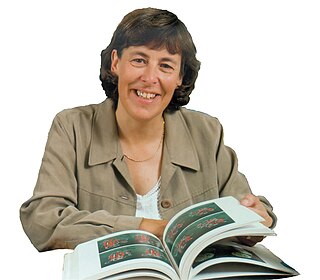
Dame Janet Maureen Thornton, is a senior scientist and director emeritus at the European Bioinformatics Institute (EBI), part of the European Molecular Biology Laboratory (EMBL). She is one of the world's leading researchers in structural bioinformatics, using computational methods to understand protein structure and function. She served as director of the EBI from October 2001 to June 2015, and played a key role in ELIXIR.

Gilean Alistair Tristram McVean is a professor of statistical genetics at the University of Oxford, fellow of Linacre College, Oxford and co-founder and director of Genomics plc. He also co-chaired the 1000 Genomes Project analysis group.
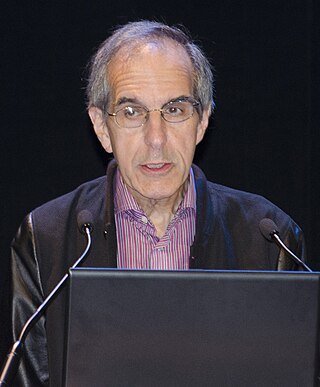
Cyrus Homi Chothia was an English biochemist who was an emeritus scientist at the Medical Research Council (MRC) Laboratory of Molecular Biology (LMB) at the University of Cambridge and emeritus fellow of Wolfson College, Cambridge.
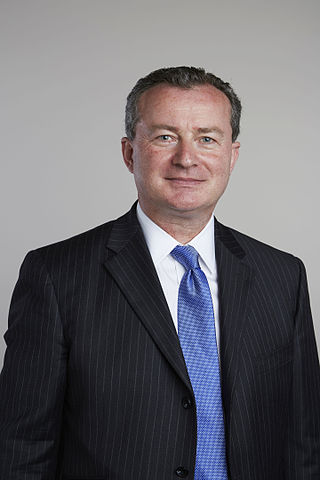
Laurence Daniel Hurst is a Professor of Evolutionary Genetics in the Department of Biology and Biochemistry at the University of Bath and the director of the Milner Centre for Evolution.
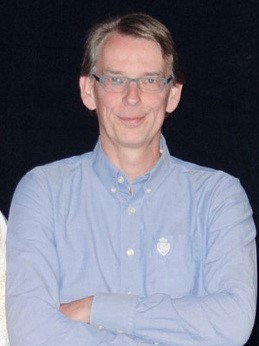
Rolf Apweiler is a director of European Bioinformatics Institute (EBI) part of the European Molecular Biology Laboratory (EMBL) with Ewan Birney.
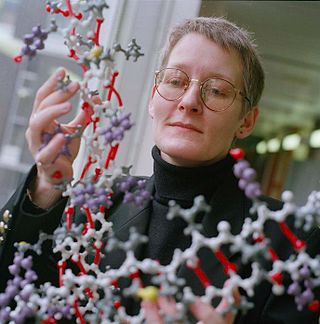
Teresa K. Attwood is a professor of Bioinformatics in the Department of Computer Science and School of Biological Sciences at the University of Manchester and a visiting fellow at the European Bioinformatics Institute (EMBL-EBI). She held a Royal Society University Research Fellowship at University College London (UCL) from 1993 to 1999 and at the University of Manchester from 1999 to 2002.

Sir Shankar Balasubramanian is an Indian-born British chemist and Herchel Smith Professor of Medicinal Chemistry in the Department of Chemistry at the University of Cambridge, Senior Group Leader at the Cancer Research UK Cambridge Institute and Fellow of Trinity College, Cambridge. He is recognised for his contributions in the field of nucleic acids. He is scientific founder of Solexa and Cambridge Epigenetix.
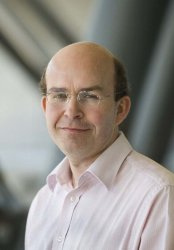
Timothy John Phillip Hubbard is a Professor of Bioinformatics at King's College London, Head of Genome Analysis at Genomics England and Honorary Faculty at the Wellcome Trust Sanger Institute in Cambridge, UK.
Sheena Elizabeth Radford FRS FMedSci is a British biophysicist, and Astbury Professor of Biophysics in the Astbury Centre for Structural Molecular Biology, School of Molecular and Cellular Biology at the University of Leeds. Radford is the Associate Editor of the Journal of Molecular Biology.

Alexander George Bateman is a computational biologist and Head of Protein Sequence Resources at the European Bioinformatics Institute (EBI), part of the European Molecular Biology Laboratory (EMBL) in Cambridge, UK. He has led the development of the Pfam biological database and introduced the Rfam database of RNA families. He has also been involved in the use of Wikipedia for community-based annotation of biological databases.

Jane Clarke is an English biochemist and academic. Since October 2017, she has served as President of Wolfson College, Cambridge. She is also Professor of Molecular Biophysics, a Wellcome Trust Senior Research Fellow in the Department of Chemistry at the University of Cambridge. She was previously a Fellow of Trinity Hall, Cambridge. In 2023, she was elected to the National Academy of Sciences.

Steve David Macleod Brown is director of the Medical Research Council (MRC) Mammalian Genetics Unit, MRC Harwell at Harwell Science and Innovation Campus, Oxfordshire, a research centre on mouse genetics. In addition, he leads the Genetics and Pathobiology of Deafness research group.
William Charles Earnshaw is Professor of Chromosome Dynamics at the University of Edinburgh where he has been a Wellcome Trust Principal Research Fellow since 1996.
David Chaim Rubinsztein FRS FMedSci is the Deputy Director of the Cambridge Institute of Medical Research (CIMR), Professor of Molecular Neurogenetics at the University of Cambridge and a UK Dementia Research Institute Professor.
Duncan Odom is a research group leader at the German Cancer Research Center (DKFZ) in Heidelberg, and the Cancer Research UK Cambridge Institute at the University of Cambridge. Previously he was as an associate faculty member at the Wellcome Trust Sanger Institute from 2011 to 2018.
Christos A. Ouzounis is a computational biologist, a director of research at the CERTH, and Professor of Bioinformatics at Aristotle University in Thessaloniki.

M. Madan Babu is an Indian-American computational biologist and bioinformatician. He is the endowed chair in biological data science and director of the center of excellence for data-driven discovery at St. Jude Children’s Research Hospital. Previously, he served as a programme leader at the MRC Laboratory of Molecular Biology (LMB).














